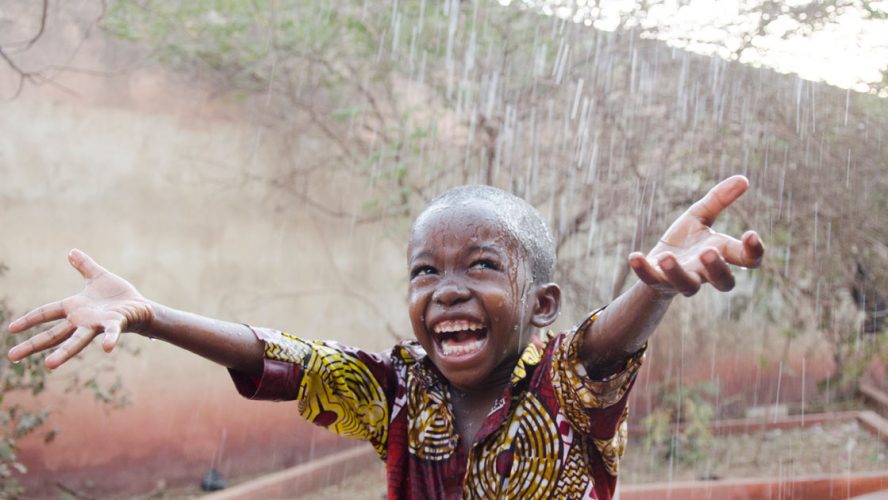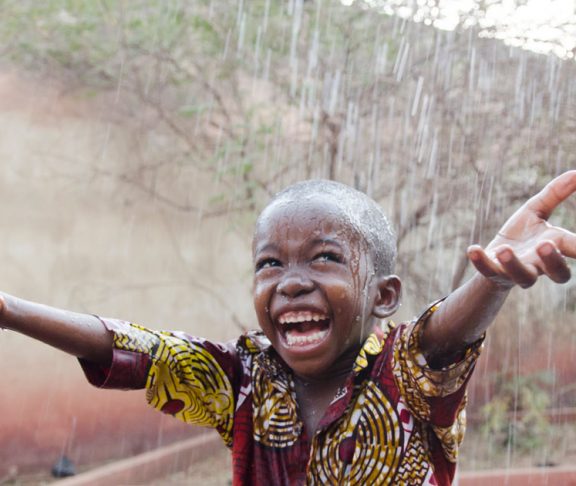Communities in Zambia that once lacked clean drinking water are now flourishing, thanks to an initiative that is installing hand-washing stations and proper toilet facilities.
Clean, safe drinking water is something that most of us take for granted. In fact, we regard it as a human right. We’ve always had it, and so we always expect it, every time we turn on our taps.
But in some parts of the world, where there are no taps and where sanitation is poor or non-existent, water is neither clean nor safe to drink. It’s a more common problem than you might think. According to a WHO/UNICEF Joint Monitoring Programme Report, 844 million people don’t have clean water — and 2.3 billion don’t have access to a toilet.
Unsafe drinking water causes sickness in Zambia
Lack of safe water isn’t just a reality for people in their home environments, it’s also an issue for children in schools.
31% of schools worldwide are without clean water.
UNICEF’s Advancing WASH in Schools Monitoring
The health implications of this are all too obvious. Contaminated water is a killer. Globally, waterborne diseases claim the lives of 3.4 million people every year.
Take Zambia, for instance, a country where five million people don’t have access to clean drinking water. In affected communities, people are sick with constant diarrhoea, simply because of the dirty water they have to drink in order to survive. Disease is widespread among the young and old — but it poses a particularly serious risk to children because their immune systems are too weak to fight off the attack of parasites, bacteria and viruses carried in the water.
Digging water wells and improving sanitation
This is why The Leona M. and Harry B. Helmsley Charitable Trust — a US-based organisation that aspires to improve lives around the world with health and select place-based initiatives — recently launched an effort to get water to Zambian communities in need through its Vulnerable Children in Sub-Saharan Africa Programme. Part of the programme’s remit is to promote good health, nutrition, and sanitation practices throughout communities in the region.
Working in partnership with international non-profit organisation WaterAid, Helmsley is ensuring that broken water and sanitation infrastructure in Zambia is being fixed, desperately needed water wells are being drilled, and sanitation and hygiene is being improved with the construction of proper toilets and hand-washing stations. To date, 130 new water wells have been dug and 80 water wells have been rebuilt in the country.
Schools and communities are flourishing
This hasn’t only brought health benefits to the Zambian people. In a landscape without clean water — where survival is a day-to-day challenge — education is often an afterthought. Now, village schools that have clean drinking water and proper toilet facilities are becoming hubs around which communities can begin to flourish.
Student numbers are increasing because children have access to safe water supply.
What’s more, student numbers are going up because children and teachers are able to access a safe, reliable water supply at school. “Before (we had clean) water, our enrolment was 364 (children),” says Precious Kamocha, a teacher at Nampongo School in the south of the country. “Now from 364, enrolment has increased to 550 within a short time. Why? Because of access to water and toilets.”
More time to focus on education
It also means that children are able to focus on learning, rather than surviving. “Most of the time now will be dedicated to school work,” says Alfred Njaame, Headmaster at Monze School in the Southern Province of Zambia. “Unlike the minutes and hours (the children) used to waste going out to fetch water.”
Of course, the Helmsley Charitable Trust and WaterAid are not saying ‘mission accomplished’ because of these successes. They have undoubtedly more to do to help other communities in Zambia who are in need of clean water, with more wells to dig and more water stations and toilet facilities to install. But so far, the programme has had a massive, positive impact on the lives of 50,000 people in the country including children, teachers and entire families. Every time they turn on the tap.

